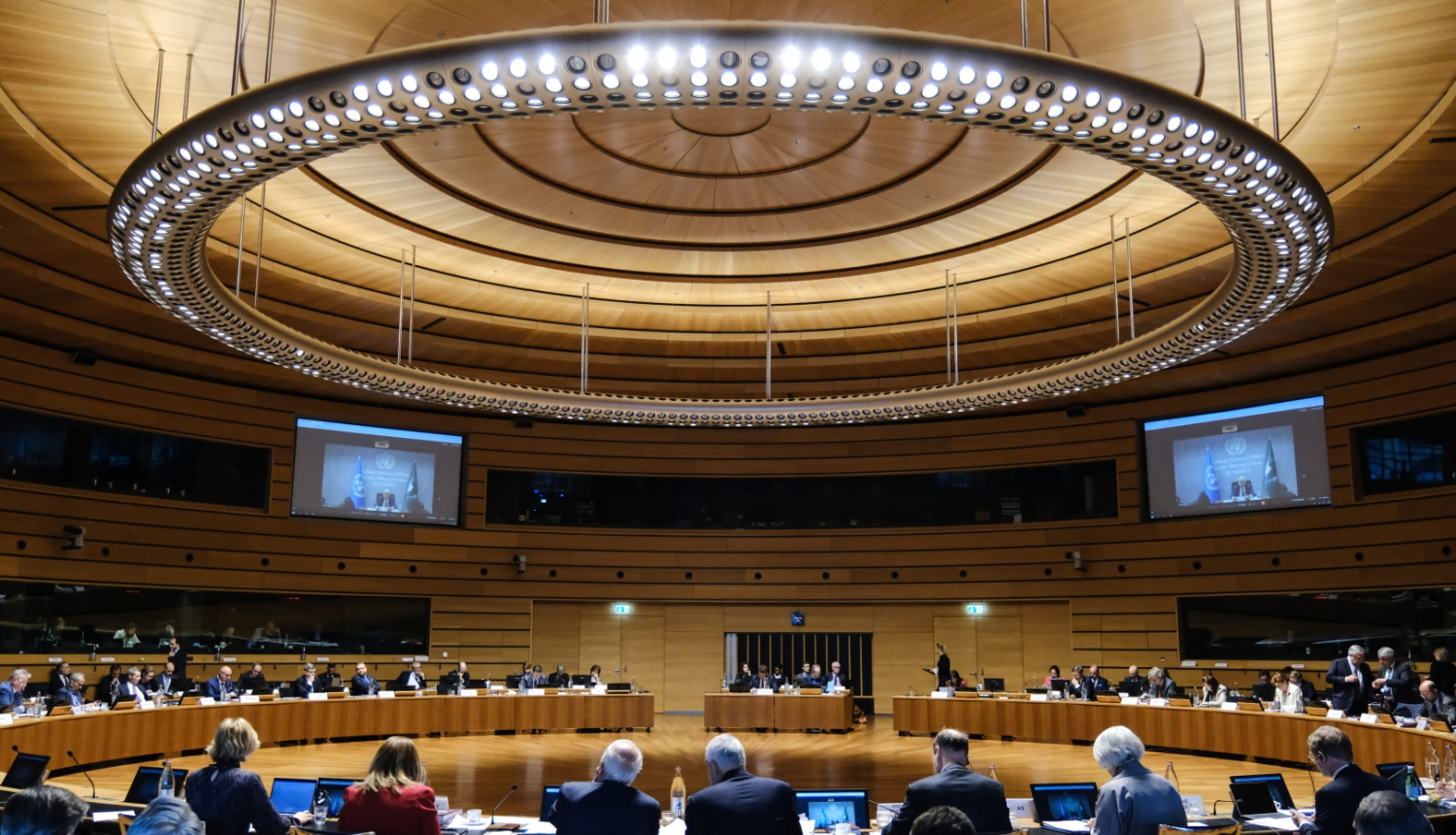On 22 April 2024 in Luxembourg, the Minister of Foreign Affairs, Baiba Braže, took part in the meeting of the European Union (EU) Foreign Affairs Council, its agenda highlights including the EU’s military support to Ukraine in its fight against Russia’s aggression, the situation in the Middle East, and a discussion on Sudan.
In a joint session by EU Foreign Affairs Ministers and Defence Ministers on support for Ukraine, Ministers were unanimous in their position on a robust and urgent further assistance, in particular, by strengthening Ukraine’s anti-aircraft defence capabilities. “The EU must take action immediately: assistance to Ukraine must not decrease. By supporting Ukraine, we are strengthening the security, defence and military capabilities of the Euro-Atlantic space,” the Latvian Foreign Minister noted, “Latvia has already signed a bilateral agreement with Ukraine on long-term support and security commitments, which envisages providing every possible support.”
Baiba Braže made it clear that the undermining of Russia’s capabilities should continue with an effective sanctions policy: “Latvia expects the 14th round of EU sanctions against Russia to include a ban on the exports and transit of manganese ore and aluminium oxide. It is important to align EU sanctions on Belarus with the regime of sanctions against Russia.” The Latvian Foreign Minister also called for the issue of circumvention of the oil price cap to be addressed, as well as for an agreement to use the profits of Russia’s frozen assets in keeping with Ukraine’s priorities, especially its military needs. Latvia also expressed support for the proposal of Finland and Italy to launch a discussion on the establishment of effective mechanisms to combat the instrumentalisation of migration.
The discussion on the Middle East followed up on the discussion initiated at the informal extraordinary meeting of the EU Foreign Ministers Affairs on 16 April, with particular attention being paid to Iran’s attack on Israel, regional issues, and efforts to achieve a solution to the humanitarian crisis. “Iran escalated the situation by attacking Israel. Therefore, the EU must therefore take a resolute action to expand Iran’s drone sanctions regime to include ballistic missiles, thereby reducing Iran’s destabilising behaviour in the region and its support for Russian aggression against Ukraine. At the same time, there must be a clear focus on the crisis in Gaza and the political process for a two-state solution,” the Minister underlined.
After the conclusion of the Foreign Affairs Council, the Minister will participate in a High Level Forum on Regional Security and Cooperation, which gathers EU Foreign Ministers and their counterparts from the Gulf Cooperation Council Member States for a discussion on the regional and global security issues, including the conflict in Gaza, Iran, and Russia’s war in Ukraine. Latvia supports building closer relations with the Gulf Region due to its significant political and economic influence.
Background information:
The Cooperation Council for the Arab States of the Gulf, also known as the Gulf Cooperation Council, established in 1981, comprises six member states: the Kingdom of Bahrain, the State of Kuwait, the Sultanate of Oman, the State of Qatar, Saudi Arabia, and the United Arab Emirates.




